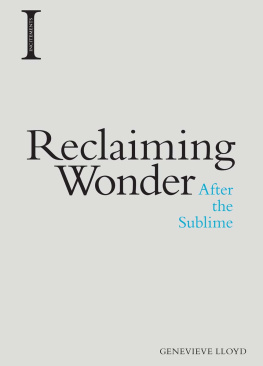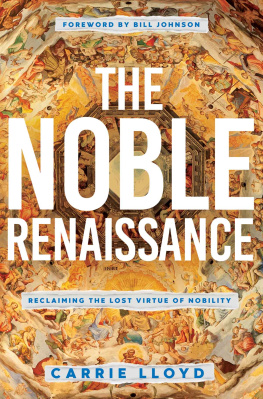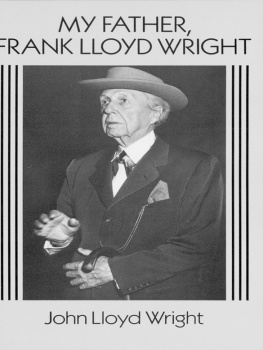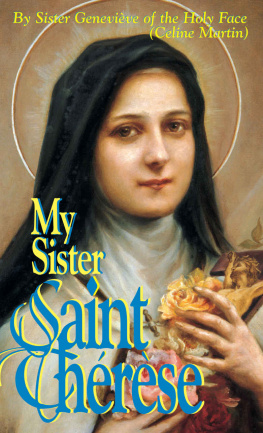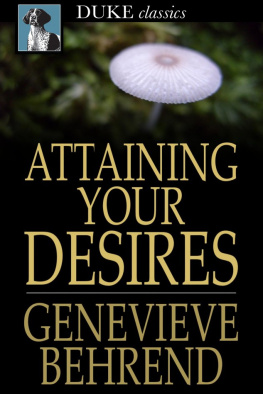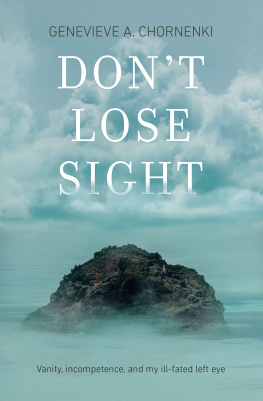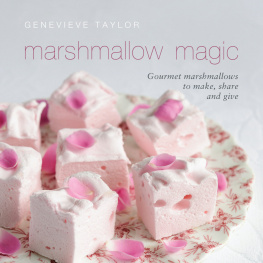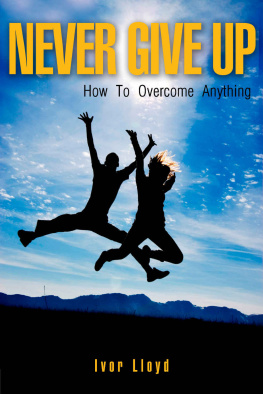Genevieve Lloyd - Reclaiming Wonder : After the Sublime
Here you can read online Genevieve Lloyd - Reclaiming Wonder : After the Sublime full text of the book (entire story) in english for free. Download pdf and epub, get meaning, cover and reviews about this ebook. year: 2018, publisher: Edinburgh University Press, genre: Detective and thriller. Description of the work, (preface) as well as reviews are available. Best literature library LitArk.com created for fans of good reading and offers a wide selection of genres:
Romance novel
Science fiction
Adventure
Detective
Science
History
Home and family
Prose
Art
Politics
Computer
Non-fiction
Religion
Business
Children
Humor
Choose a favorite category and find really read worthwhile books. Enjoy immersion in the world of imagination, feel the emotions of the characters or learn something new for yourself, make an fascinating discovery.
- Book:Reclaiming Wonder : After the Sublime
- Author:
- Publisher:Edinburgh University Press
- Genre:
- Year:2018
- Rating:5 / 5
- Favourites:Add to favourites
- Your mark:
- 100
- 1
- 2
- 3
- 4
- 5
Reclaiming Wonder : After the Sublime: summary, description and annotation
We offer to read an annotation, description, summary or preface (depends on what the author of the book "Reclaiming Wonder : After the Sublime" wrote himself). If you haven't found the necessary information about the book — write in the comments, we will try to find it.
Reclaiming Wonder : After the Sublime — read online for free the complete book (whole text) full work
Below is the text of the book, divided by pages. System saving the place of the last page read, allows you to conveniently read the book "Reclaiming Wonder : After the Sublime" online for free, without having to search again every time where you left off. Put a bookmark, and you can go to the page where you finished reading at any time.
Font size:
Interval:
Bookmark:

Reclaiming Wonder
Incitements
Series editors
Peg Birmingham, DePaul University and Dimitris Vardoulakis, Western Sydney University
Editorial Advisory Board
tienne Balibar, Andrew Benjamin, Jay M. Bernstein, Rosi Braidotti, Wendy Brown, Judith Butler, Adriana Cavarero, Howard Caygill, Rebecca Comay, Joan Copjec, Simon Critchley, Costas Douzinas, Peter Fenves, Christopher Fynsk, Moira Gatens, Gregg Lambert, Leonard Lawlor, Genevieve Lloyd, Catherine Malabou, James Martel, Christoph Menke, Warren Montag, Michael Naas, Antonio Negri, Kelly Oliver, Paul Patton, Anson Rabinbach, Gerhard Richter, Martin Saar, Miguel Vatter, Gianni Vattimo, Santiago Zabala
Available
Return Statements: The Return of Religion in Contemporary Philosophy
Gregg Lambert
The Refusal of Politics
Laurent Dubreuil, translated by Cory Browning
Plastic Sovereignties: Agamben and the Politics of Aesthetics
Arne De Boever
From Violence to Speaking Out: Apocalypse and Expression in Foucault, Derrida and Deleuze
Leonard Lawlor
Agonistic Mourning: Political Dissidence and the Women in Black
Athena Athanasiou
Interpassivity: The Aesthetics of Delegated Enjoyment
Robert Pfaller
Derridas Secret: Perjury, Testimony, Oath
Charles Barbour
Resistance and Psychoanalysis: Impossible Divisions
Simon Morgan Wortham
Visit the series web page at: edinburghuniversitypress.com/series/incite
Reclaiming Wonder
After the Sublime
Genevieve Lloyd

Edinburgh University Press is one of the leading university presses in the UK. We publish academic books and journals in our selected subject areas across the humanities and social sciences, combining cutting-edge scholarship with high editorial and production values to produce academic works of lasting importance. For more information visit our website: edinburghuniversitypress.com
Genevieve Lloyd, 2018
Edinburgh University Press Ltd
The Tun Holyrood Road, 12(2f) Jacksons Entry, Edinburgh EH8 8PJ
A CIP record for this book is available from the British Library
ISBN 978 1 4744 3313 6
The right of Genevieve Lloyd to be identified as the author of this work has been asserted in accordance with the Copyright, Designs and Patents Act 1988, and the Copyright and Related Rights Regulations 2003 (SI No. 2498).
Contents
An earlier version of material from was delivered in a lecture to the Australian Society for Continental Philosophy Annual Conference, held at the Melbourne Campus of the Australian Catholic University, 46 December 2014, and subsequently published under the title Derrida and the Philosophical History of Wonder, in Parrhesia: A Critical Journal of Philosophy, No. 24, 2015, pp. 6482. Related material also occurs in passages included in my essay, The Philosophical History of Wonder, published in Graduate Faculty Philosophy Journal, The New School for Social Research, Vol. 34, No. 2, 2013, pp. 299316. Some passages in my discussion, in Chapter 8, of Arendts comments on asylum seekers occur also, differently framed, in my essay, Nomadic Subjects and Asylum Seekers, in Bolette Blaagaard and Iris Van Der Tuin, eds, The Subject of Rosi Braidotti: Politics and Concepts (London: Bloomsbury, 2014), pp. 1859.
I am grateful to Amlie Rorty for her interest in earlier versions of the material, and to Edinburgh University Press readers for helpful responses during preparation of the final version. I wish also to express my appreciation to the series editors, Peg Birmingham and Dimitris Vardoulakis, for encouraging the project, and to all involved in the production process: to Carol Macdonald, Ersev Ersoy and James Dale for professional advice and thoughtful suggestions, and to Tim Clark for meticulous and constructive copy editing.
Philosophers once delighted in wonder, to the point where they claimed it as their own as a special state of mind which defined their distinctive intellectual activity. Todays philosophers, in contrast, show few signs of thinking about wonder at all. Wonder is curiously absent from contemporary philosophical concerns. It has, it seems, been relegated to the past. Philosophers still happily acknowledge that it may as their ancient counterparts thought have been the beginnings of their mode of thinking; it may have stimulated the emergence of philosophy from misty myth into the clearer light of intellectual inquiry. However, contemporary philosophy seems more eager to identify with the rigorous methodical processes associated with modern science than with the stirrings of wonder.
Something of that old narrative of philosophys progress from myth and metaphor into the clear light of reason seems to be mirrored in more general attitudes to wonder. Wonder tends to be appreciated, even cherished, in its manifestations in the very young. The capacity for wonder is commonly seen as an endearing trait of childhood; its charms are less beguiling in adulthood. We may regret the decline of that capacity along with other inevitable costs of the benefits of maturity. Having put aside childish things, we are in our adult lives uncertain what to think about wonder and about how to think with it. If we browse in bookshops for expressions of wonder, we are more likely to find them under Fantasy Fiction than in the Philosophy sections. Non-recreational wonder along with sustained philosophical consideration of its nature and of its role in the life of the mind seems to have gone missing. Wonder is now generally associated with escapist retreat into the fantastic, rather than with serious intellectual engagement with reality.
Our collective uncertainty about wonder is not surprising. Ambivalence about it has pervaded the history of western thought, becoming more acute with the development of modern science. Even in those distant times when philosophers were happy to define themselves through it, wonder was associated with intellectual discontent. Indeed, discontent was often seen as inherent in it. To be prone to wonder indicated a lack of knowledge; and it was the sense of that lack, after all, that made wonder the driving force of inquiry.
Wonder can have negative associations as restless fluctuation. It can also have positive associations as purposeful desire. It can be construed as a balancing or reconciliation between opposed tendencies to motion and rest. All these attitudes to wonder can be found in the history of western philosophy. The history of wonder is not the simple trajectory of a single concept. It reflects a variety of ways of thinking about knowledge. It has been intermingled with the history of other emotions such as awe and dread; it has also been caught up in changing attitudes towards imagination. It has been associated with surprise and amazement, and hence sometimes with stupor. By extension, it has been related to stupidity, as well as to intense intelligence and intellectual activity. Through its connotations of transcendence, mystery and awe, it has been caught up in the history of religion; it has been a focal point, especially, for contention about modern ideas of the secular.
Wonders role in the acquisition of knowledge is only one thread in its long history; yet that thread has at times dominated the tapestry. Wonders other aspects can be difficult to extricate from familiar narratives of its role in instigating inquiry, and of its limitations as a source of new knowledge. Yet wonder can be directed to things we already know, as well as to what remains unknown. We can wonder at everyday things, as well as being amazed by the strange and exotic. Wonder can also have political significance; it can shake us into a fresh perception of what is at stake in cultural assumptions and expectations that we have come to regard as normal.
Next pageFont size:
Interval:
Bookmark:
Similar books «Reclaiming Wonder : After the Sublime»
Look at similar books to Reclaiming Wonder : After the Sublime. We have selected literature similar in name and meaning in the hope of providing readers with more options to find new, interesting, not yet read works.
Discussion, reviews of the book Reclaiming Wonder : After the Sublime and just readers' own opinions. Leave your comments, write what you think about the work, its meaning or the main characters. Specify what exactly you liked and what you didn't like, and why you think so.

